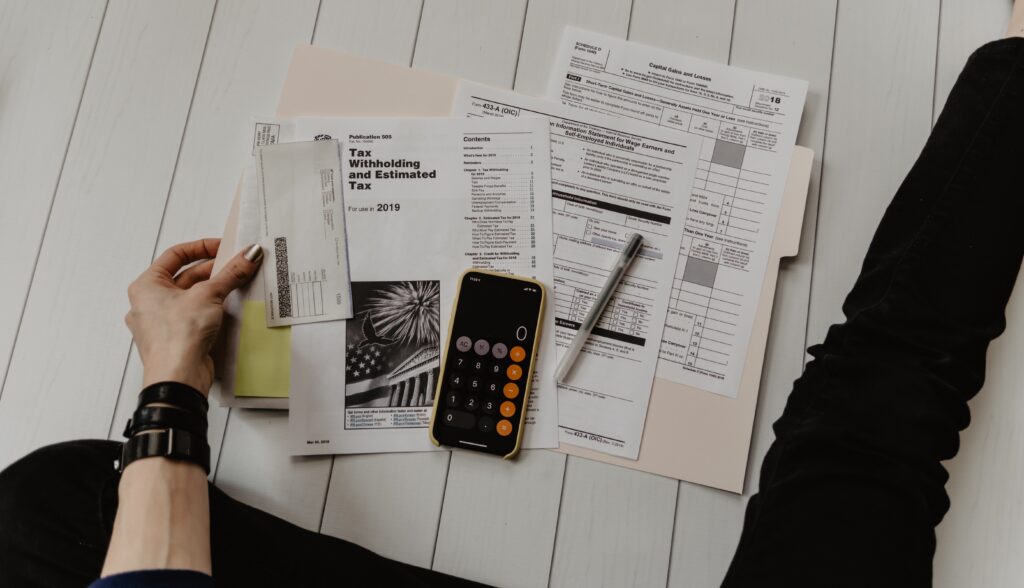How fast can you sell your home in Florida?
The speed at which you can sell your home in Florida depends on a variety of factors, including the state of the local real estate market, the condition of your home, and the price you’re asking for. Selling a house in Florida during a hot market with high demand, you may be able to sell your home quickly, potentially within a few weeks. However, in a slower market, it may take longer to find a buyer.
There are a lot of actions you can take to increase the likelihood of a swift sale of your home. First and foremost, it’s important to price your home appropriately. If you’re asking for more than what comparable homes in your area are selling for, you may have a harder time finding a potential buyer.
On the other hand, if you price your home competitively, you may be more likely to attract multiple offers, which can drive up the price and help you sell faster.
In addition to pricing your home correctly, you should also make sure it’s in good condition. This means making any necessary repairs or improvements, such as fixing leaky faucets or painting the walls.
It’s also a good idea to stage your home to make it more appealing to potential buyers. This can involve anything from decluttering to adding a fresh coat of paint.
Finally, working with a competent and experienced real estate agent can also help you sell your home faster. A good agent will have a strong understanding of the local market and be able to help you price your home appropriately, as well as provide guidance on staging and other strategies to attract buyers.
Get Your Highest Cash Offer Now.
We Buy Houses in Florida in 7 days!
What is the process for selling a house in Florida?
Selling a house in Florida involves several steps, including preparing your home for sale, marketing it to potential buyers, and navigating the legal process. Here’s an overview of the process:
- Prepare your home for sale: This includes making any necessary repairs or improvements, staging your home, and getting it ready for showings.
- Determine the asking price: It’s important to price your home appropriately to attract buyers and maximize your profits. By collaborating with a real estate agent, you can determine the fair market value of your home by considering factors such as its location, size, and condition.
- Marketing your home: There are various ways to market your home, including listing it on real estate websites, holding open houses, and advertising in local media. Your real estate agent can help with these efforts, as well as assist with negotiations with potential buyers.
- Review and negotiate offers: When you receive an offer on your home, you’ll need to review the terms and decide whether to accept, counter, or reject it. Your real estate agent can help you navigate this process and negotiate the best deal possible.
- Complete necessary paperwork: Once you’ve accepted an offer, you’ll need to complete various legal documents, including the purchase and sale contract and a deed transferring ownership of the property. Your real estate agent or a lawyer can help you with this process.
- Close the sale: The final step in the process is the closing, where you’ll transfer ownership of the property to the buyer and receive the sale proceeds. You’ll need to pay any outstanding bills and fees, such as closing costs and taxes, at this time.
Questions to ask yourself when preparing to sell
Before starting the procedure of selling your house in Florida, it’s important to ask yourself a few questions to ensure you’re ready. These may include:
- Why do you want to sell your home? Are you looking to move to a different location, upgrade to a bigger home, or downsize? Understanding your motivations for selling can help you set realistic goals and expectations for the process.
- How much is your home worth? Knowing the equitable market value of your home is crucial for setting the right asking price. You can consult with a real estate agent or use online tools to get an estimate of your home’s value.
- What condition is your home in? If your home needs repairs or updates, it’s important to make these before putting it on the market. This can help you get a better price and make the process of selling go smoother.
- Are you prepared for the emotional aspect of selling? Selling a home can be an emotional process, especially if you’ve lived there for a long time. Make sure you’re mentally prepared for the ups and downs of the process and have a plan in place for where you’ll go after the sale.
How to sell a mobile home in Florida
If you own a mobile home in Florida, you might wonder how to go about selling it. The process of selling a mobile home is similar to selling a traditional home, but there are a few key differences to be aware of.
First, it’s important to understand that mobile homes are considered or regarded as personal property rather than real estate. This means that the process of selling a mobile home is generally simpler and less time-consuming than selling a traditional home.
To sell a mobile home in Florida, you’ll need to complete a bill of sale, which is a document that transfers the holding of the property. You’ll also need to provide proof of ownership, such as the title of the mobile home.
If you’re selling a mobile home that’s located in a mobile home park, you’ll need to follow the rules and regulations of the park, as well as any state laws that apply. This may include obtaining permission from the park owner and paying any applicable fees or commissions.
It’s also beneficial to work with a real estate agent who has experience with mobile homes to help you navigate the process and maximize your profits. An agent can assist with pricing, marketing, and negotiating offers, as well as handle any necessary paperwork.

What Are Some Key Legal Requirements for Selling a House in Florida?
There are several legal requirements to be aware of when selling a house in Florida. Failing to follow these requirements can result in delays or complications in the sale process or even legal action. Here are some key legal requirements to be aware of:
Documents needed to sell a house in Florida.
There are several documents you’ll need to provide when selling a house in Florida, including:
- A clear title: You’ll need to provide proof that you own the property and are able to sell it. This may require obtaining a title search and resolving any issues with the title, such as liens or encumbrances.
- A home inspection report: Many buyers will request a home inspection before making an offer. This report will detail the condition of the property and any necessary repairs or updates.
- A seller’s disclosure statement: This document details any known defects or issues with the property, such as problems with the roof or appliances. It’s important to be honest, sincere, and transparent about the condition of your home to avoid potential legal issues later on.
- Other documents: Depending on the specifics of the sale, you may also need to provide additional documents, such as a mortgage payoff statement or proof of insurance. Your real estate agent or lawyer can help you determine what documents are needed.
Crucial Topics in the Florida Home Purchase and Sale Contracts
The home purchase and sale contract is a legally binding certificate that outlines the terms of the sale, including the price, closing date, and any contingencies. It’s important to carefully review this contract and understand all the terms before signing. Some key topics to consider include the following:
- The purchase price: This should be clearly stated in the contract and should match the agreed-upon amount between you and the buyer.
- Closing date: The closing date is the date on which the sale will be finalized and ownership of the property transferred. Make sure this date is realistic and allows enough time for any necessary paperwork or repairs to be completed.
- Contingencies: Contingencies are conditions that should be met before the sale can be completed. These may include a satisfactory home inspection or the buyer obtaining financing. Make sure you understand any contingencies in the contract and whether they are reasonable.
- Financing: If the buyer acquires a mortgage to purchase your home, it’s important to understand the terms of the loan and how it may affect the sale.
- Warranty: Many contracts include a warranty, which is a promise by the seller to repair or compensate the buyer for certain issues with the property. Make sure you understand and realize the terms of the warranty and whether you’re comfortable with them.
Duty to Disclose
As a seller in Florida, you have a legal duty to disclose any known defects or issues with your property. This includes things like problems with the roof, plumbing, or appliances. Failing to disclose these issues can result in legal action and can potentially void the sale.
It’s important to be sincere, honest, and transparent about the condition of your home to avoid any potential legal issues. If you’re unsure about what needs to be disclosed, it’s a good idea to consult with a lawyer.
Best time to sell a house in Florida
The best time will depend on a variety of factors, including the state of the local real estate market and your personal circumstances. While it’s tempting to assume that the warmer months are the perfect time to sell a house in Florida, the reality is more complex.
For one, the hot and humid summers in Florida may make it less appealing to potential buyers, leading to a slower sales process.
On the other hand, if the market is hot and demand is high, you may be able to sell your house quickly and for a good price, regardless of the season.
It’s important to consider the state of the local real estate market when deciding when to sell your house in Florida. If the market is active and demand is high, you may be able to sell your house quickly and for a good price.
On the other hand, if the market is slower, it may take longer to find a buyer, and you may need to be more flexible with your asking price.
In addition to the local market conditions, you should also consider your personal circumstances when deciding when to sell your house in Florida. For example, if you have a specific timeline in mind, such as wanting to move before the start of the school year, you may need to adjust your timing to meet your goals.
Ultimately, the best time to sell a house in Florida will depend on a combination of market conditions and your personal needs and goals. By understanding the factors that can impact the success of your sale and carefully planning your timing, you can increase your chances of a successful sale.
Get Your Highest Cash Offer Now.
We Buy Houses in Florida in 7 days!
Cost of selling a house in Florida
There are numerous costs associated with selling a house in Florida, including closing costs, real estate commissions, and any necessary repairs or updates. It’s important to be aware of these costs so you can budget for them and maximize your profits.
Closing costs for the seller in Florida
Closing cost is a fee that is paid at the time of the sale to finalize the transaction. As the seller, you’ll be responsible for paying certain closing costs, including:
- Transfer taxes: These are taxes paid to the state or local government when ownership of the property is transferred. In Florida, the transfer tax is typically around $0.70 per $100 of the sale price.
- Title insurance: Title insurance secures the buyer and lender from any issues with the title to the property. As the seller, you’ll need to pay for the buyer’s title insurance policy.
- Escrow fees: Escrow fees is paid to the escrow company, which handles the closing process and ensures that all necessary documents are in order.
- Other fees: There may be other fees associated with the sale, such as lender fees or attorney’s fees. Your real estate agent or lawyer can help you understand which fees you’ll be responsible for.
Cost of selling a house in Florida calculation
Cost of Selling a House in Florida = Closing Costs + Real Estate Commissions + Repairs/Updates + Legal Fees + Taxes
To get a bumpy estimate of the cost of selling a house in Florida, you can use an online calculator. These calculators typically ask for basic information about your property, such as the sale price and location, and provide an estimate of the closing costs and other fees you can expect to pay.
Keep in mind that these estimates are just rough estimates and may not include all the costs associated with selling your house. It’s useful to work with a real estate agent or lawyer to get a more accurate estimate of the costs you’ll incur.
Here are some key variables that may impact the cost of selling a house in Florida:
- Sale price: The higher the sale price, the higher the closing costs and other fees you can expect to pay.
- Location: The location of your property may affect the closing costs and other fees you’ll need to pay. For example, properties in urban areas may have higher closing costs due to higher demand and higher tax rates.
- Closing costs: Closing cost is a fee that is paid at the time of the sale to finalize the transaction. These may include transfer taxes, title insurance, escrow fees, and other fees.
- Real estate commissions: If you’re working with a real estate agent, you’ll need to pay a commission based on a percentage of the sale price. This commission is typically split between the seller’s agent and the buyer’s agent.
- Repairs or updates: If you need to make repairs or updates to your property before selling, this will add to the cost
- of selling your house.
- Legal fees: If you’re working with a lawyer or real estate attorney, you’ll need to pay legal fees for their services.
- Taxes: When you sell a house in Florida, you’ll need to pay various taxes, such as capital gains tax on any profit from the sale and local taxes.
By understanding these variables, you can get a better idea of the costs you can expect to pay when selling your property. It’s important to remind that these estimates are just rough estimates and may not include all the costs associated with selling your house.
To get a more precise and accurate estimate of the costs you’ll incur, it’s a good idea to work with a real estate agent or investor.

Selling a house in Florida taxes.
When you sell a house in Florida, you may be required to pay taxes on the sale. The specific taxes you’ll need to pay will depend on a variety of factors, such as your profit from the sale and your tax bracket. Here are a few taxes to be aware of when selling a house in Florida:
Capital gains tax: If you sell your house for a profit, you’ll need to pay capital gains tax on the profit. The capital gains tax rate in Florida is the same as the federal capital gains tax rate, which is currently 15% for most taxpayers.
Sales tax: In Florida, sales tax is typically collected by the seller and paid to the state at the time of the sale. The sales tax rate in Florida is 6%.
Other taxes: There may be other taxes to consider when selling a house in Florida, such as property taxes or local taxes. It’s beneficial to consult with a tax professional or lawyer to understand all the taxes you’ll need to pay when selling your house.
Capital gains on selling a house in Florida
If you sell your house in Florida for a profit, you’ll need to pay capital gains tax on the profit. Capital gains tax is a tax on the profit you gain when you sell an asset, such as a house, for more than you paid for it.
The capital gains tax rate in Florida is the same as the federal capital gains tax rate, which is currently 15% for most taxpayers. However, there are certain exceptions and exclusions that may apply, such as the home sale exclusion, which allows you to exclude up to $250,000 of capital gains from tax if you’re single or $500,000 if you’re married and filing jointly.
It’s important to understand the capital gains tax implications of selling your house in Florida and to consult with a tax professional or lawyer to ensure you’re paying the correct amount of tax.
Finding a local Realtor
Working with a local realtor can be helpful when selling a house in Florida. A good agent will have a strong understanding of the local market and be able to assist with pricing, marketing, and negotiations with potential buyers.
To find a local realtor, you can start by asking friends and family for recommendations, or you can search online for agents in your area. When interviewing agents, be sure to ask about their experience, track record, and marketing strategies to ensure they’re the right fit for your needs.
Selling a house in Florida without a realtor.
If you’re considering selling your house in Florida without the assistance or advice of a real estate agent, you’re not alone. Many homeowners choose to sell their houses by owner, or FSBO (For Sale By Owner), to save on real estate commissions and have more control over the process.
However, it’s important to understand that selling a house without a realtor can be more time-consuming and challenging, as you’ll be responsible for all aspects of the sale, including pricing, marketing, and negotiating with buyers.
If you decide to sell your house in Florida as the owner, you’ll need to handle all the necessary paperwork, such as a home purchase and sale contract, a bill of sale, and a deed. It’s helpful to consult with a lawyer or real estate attorney to ensure you have all the necessary paperwork in place and to understand your legal obligations as a seller.
While selling by owner can be a good option if you have the time and expertise to handle the process on your own, it’s important to attentively consider the pros and cons of this approach and to be prepared for the additional work and responsibilities involved.
With careful planning and an in-depth understanding of the process, you can successfully sell your house in Florida without a realtor and maximize your profits from the sale.
If you want to learn more about the FSBO process we recommend checking out our in-depth article teaching you how to sell a house by owner in Florida.
Benefits of selling a house in Florida by the owner
Selling a house in Florida by the owner, also known as FSBO (For Sale By Owner), can be a good option for those who have the time and expertise to handle the process on their own. There are several benefits to selling a house in Florida by the owner, including:
Saving on real estate commissions: One of the main benefits of selling by owner is that you’ll save on real estate commissions, which can be a significant cost when selling a house.
Having more control: When you sell by owner, you’ll have more control over the process, including the pricing and marketing of your home.
Potentially faster sale: Because you won’t have to wait for a realtor to schedule showings or negotiate offers, you may be able to sell your house faster by owner.
Paperwork for selling a house without a realtor in Florida
If you decide to sell your house in Florida by the owner, you’ll be responsible for handling all the necessary paperwork. This may include:
- A home purchase and sale contract: This is a legally binding contract that outlines the terms of the sale, including the price, closing date, and any contingencies.
- A bill of sale: This is a document that transfers possession of the property from the seller to the buyer.
- A deed: A deed is a licit document that transfers ownership or possession of the property from the seller to the buyer. In Florida, the deed must be notarized and recorded with the county clerk.
It’s beneficial to consult with a lawyer or real estate attorney to ensure you have all the necessary paperwork in place and to understand your legal obligations as a seller.
Get Your Highest Cash Offer Now.
We Buy Houses in Florida in 7 days!
Selling a house in Florida without a realtor.
Selling a house for cash in Florida.
If you’re considering selling your house in Florida quickly and without the hassle of dealing with traditional buyers, you may be considering selling for cash. Here are a few options to consider:
Ibuyer: An ibuyer is a firm that makes cash offers on houses, often with a quick closing process. Ibuyers typically make offers based on algorithms that take into account the location and condition of the property, as well as recent sales data.
Cash offer: You can also consider selling your house directly to a cash buyer, who may be an individual investor or a company like Level One Investments.
Selling a house as is in Florida.
Selling a house as is in Florida can be a smart and convenient option for homeowners who don’t have the free time or resources to make repairs or updates before the sale. By selling a house as is, you can avoid the hassle and expense of making repairs and can potentially sell your house faster, as you won’t have to wait for repairs to be completed before listing the property.
Furthermore, selling a house as is can be a good option for homeowners who are facing time constraints, such as a relocation or family emergency, and need to sell their house quickly.
By not having to wait for repairs to be completed, you can sell your house faster and move on to your next adventure.
Overall, as is in Florida can be a smart and convenient option for homeowners who are looking to sell quickly and don’t have the free time or resources to make repairs.
Selling a house in probate in Florida.
If you’re selling a house that’s in probate, it means that the owner of the property has passed away, and the estate is being settled by the court. Selling a home in probate can be a more complicated process than a typical sale, as there are additional legal and procedural requirements to consider.
To sell a home in probate in Florida, you’ll need to obtain court approval and follow the steps outlined in the probate process. This may include hiring a probate attorney, getting an appraisal of the property, and advertising the sale.
It’s beneficial to work with a lawyer or real estate agent who has experience with probate sales to ensure the process goes smoothly and to maximize your profits from the sale.
Selling a house in foreclosure in Florida.
If you’re selling a house in foreclosure, it means that the property is being repossessed by the lender due to non-payment of the mortgage. Selling a house in foreclosure can be a more complicated process than a typical sale, as the lender will have a say in the sale, and there may be legal issues to consider.
To sell a home in foreclosure in Florida, you’ll need to work with the lender to determine the terms of the sale and follow the legal process outlined by the court.
I believe it would be beneficial to work with a real estate agent or investor who has experience with foreclosure sales to ensure the process goes smoothly and to maximize your profits from the sale.
Selling an inherited house in Florida.
If you’re selling an inherited house in Florida, it means that you’ve inherited a property from someone who has passed away. Selling an inherited house can be a more complicated process than a typical sale, as you’ll need to consider the legal and tax implications of the sale.
To sell an inherited home in Florida, you’ll need to obtain court approval if the property is in probate, and you’ll need to understand any tax implications of the sale, such as capital gains tax.
It’s advised to work with a lawyer or real estate agent who has experience with inherited property sales to ensure the process goes smoothly and to maximize your profits from the sale.
Conclusion
The procedure of selling a property in Florida may involve various steps and considerations, with many legal, financial, and logistical considerations to keep in mind. From understanding the process for selling a house in Florida and preparing your home for the market to navigating the legal requirements and taxes, there are many elements to consider when selling a house in the Sunshine State.
While working with a local realtor can be helpful in navigating the process, it’s also possible to sell your house by owner or to consider alternative options, such as selling for cash or selling a house as is.
It is essential to thoroughly evaluate your options and to work with professionals, such as lawyers, real estate agents, and investors to ensure the process goes smoothly and you maximize your profits from the sale.
Through careful planning and a comprehensive understanding of the process, you can successfully sell your house in Florida and move on to your next adventure.
Table of Contents
FAQ
Most frequent questions and answers
Do you need a lawyer to sell a house in Florida?
It’s not required to have a lawyer to sell a house in Florida, but it’s a good idea to consult with one to ensure you’re following all the necessary legal requirements and to protect your interests. A lawyer can help you better understand the legal implications of the sale and assist with any necessary paperwork.
How much is the tax when you sell a house in Florida?
The tax you’ll need to pay when you sell a house in Florida will depend on a variety of factors, such as your profit from the sale and your tax bracket. You’ll have to pay capital gains tax on any profit from the sale, and you may also need to pay sales tax and other taxes, such as property taxes. This is a beneficial suggestion to consult with a tax professional or lawyer to understand all the taxes you’ll need to pay when selling your house.
What do you need to sell your home in Florida?
To sell your house in Florida, you’ll need to provide certain documents, such as a clear title, a home inspection report, and a seller’s disclosure statement. You’ll also need to complete a home purchase and sale contract and provide a bill of sale and deed to transfer ownership of the property. I believe it would be beneficial to consult with a real estate agent or lawyer to understand all the documents you’ll need to provide when selling your home.
Who pays for the title policy in Florida?
In Florida, the seller typically pays for the buyer’s title insurance policy. Title insurance secures the buyer and lender from any issues with the title to the property, such as liens or encumbrances. The cost of the title insurance policy will depend on the value of the property and the lender’s requirements.
What is the average closing cost for a seller in Florida?
The average closing price for a seller in Florida will depend on the sale price of the property and any applicable taxes or fees. Some common closing costs for sellers in Florida include transfer taxes, title insurance, and escrow fees. To get a rough estimate of the closing costs, you can look to pay as a seller in Florida, and you can use an online closing cost calculator. Keep in mind that these estimates are just rough estimates and may not include all the costs associated with selling your house. It’s good to consult with a real estate agent or lawyer to get a more accurate estimate of the costs you’ll incur.



